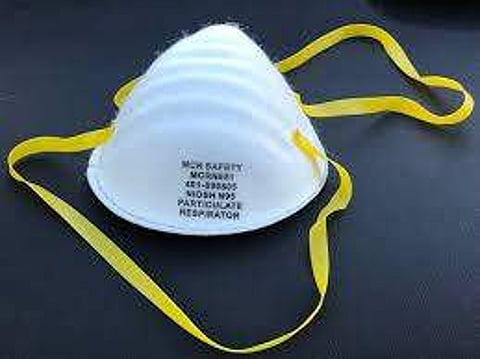

Using a combination of moderate heat and high relative humidity, researchers were able to disinfect N95 mask materials without hampering their ability to filter out viruses, including Covid-19. "The ability to decontaminate several of these masks while doctors are having a coffee break will lessen the chance that masks contaminated with COVIC viruses would expose other patients," said study author Steven Chu from the Stanford University in the US.
According to the study, published in the journal ACS Nano, facing a shortage of the masks early this year, researchers considered a number of ways to disinfect them for reuse, including ultraviolet light, hydrogen peroxide vapours, autoclaves and chemical disinfectants. The problem is that many of these methods degrade the N95 masks' filtering abilities so that at most they could be reused a few times. In the new study, the research team focused their attention on a combination of heat and humidity to try to decontaminate masks.
The team first mixed up batches of SARS-CoV-2 virus in liquids designed to mimic the fluids that might spray out of our mouths when we cough, sneeze, sing or simply breathe. They next sprayed droplets of the brew on a piece of melt-blown fabric, a material used in most N95 masks, and let it dry. Finally, they heated their samples at temperatures ranging from 25 to 95 degrees Celsius for up to 30 minutes with relative humidity up to 100 per cent.
Higher humidity and heat substantially reduced the amount of virus the team could detect on the mask, although they had to be careful not to go too hot, which additional tests revealed could lower the material's ability to filter out virus-carrying droplets. The sweet spot appeared to be 85 degrees Celsius with 100 per cent relative humidity - the team could find no trace of SARS-CoV-2 after cooking the masks under those conditions.
Additional results indicate masks could be decontaminated and reused upwards of 20 times and that the process works on at least two other viruses. Researchers have known for a long time that heat and humidity are good ways to inactivate viruses - there hadn't been an urgent need for a detailed quantitative analysis of something like mask decontamination until now. "The new data provide some quantitative guidance for the future," Chu noted.
